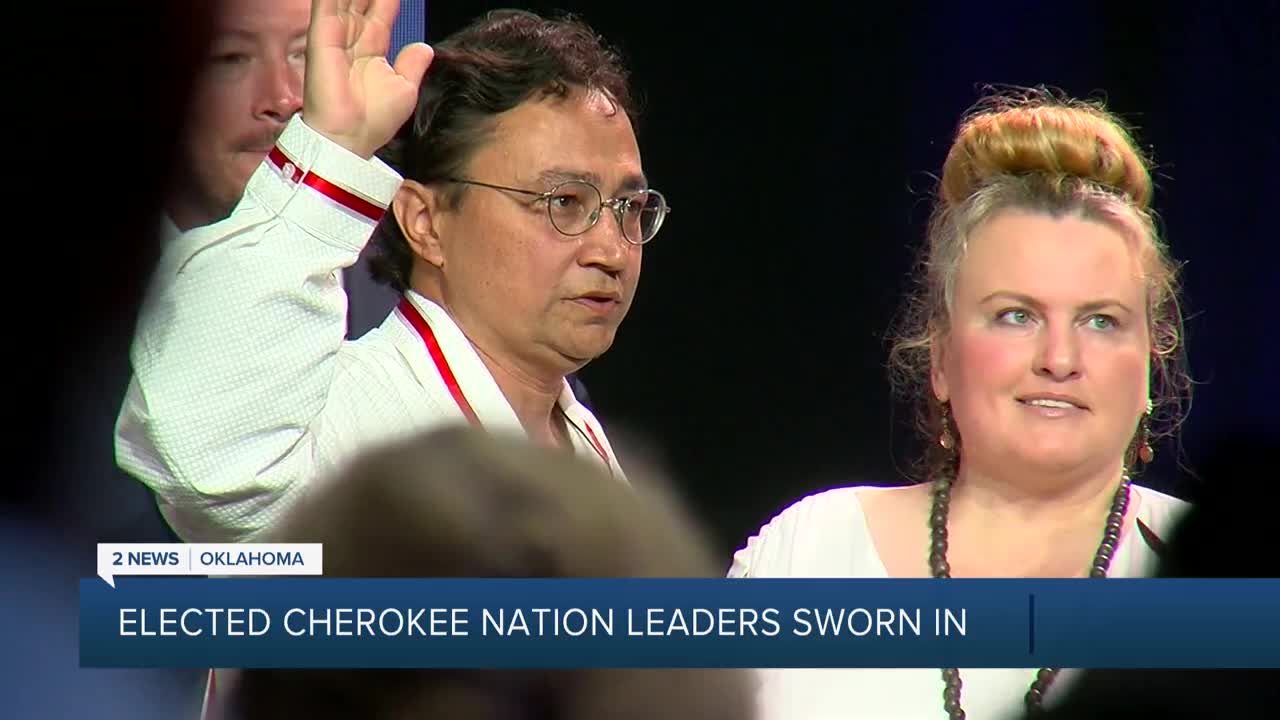Cherokee Nation Principal Chief, Deputy Chief and eight members of the Cherokee Nation council took their official oath of office during an inauguration ceremony this morning.
Inside the Chota Conference Center, people packed the room for the inauguration of Chief Chuck Hoskin Jr.’s second four-year term.
The ceremony consisted of cheers, applause, and people dressed in tribal regalia.
Chief Chuck Hoskin Jr., along with Deputy Chief Bryan Warner, took their oath of office, both agreeing to serve Cherokee Nation for another term four-year term.
Ahead of the swearing in 2 News got a chance to speak with Chief Hoskin Jr., who says this is an exciting day and he feels good coming out of the election.
"I feel like the Deputy Chief and I, Bryan Warner, what we've worked on the last four years with the council has been validated, and today we start anew," the chief said.
His vision for the next four years involves continually working on health care, the $400 million hospital being constructed, a new health clinic, drug treatment centers, and protecting Cherokee sovereignty.
He said there are threats to their sovereignty.
Some of that, he says, comes with the contentious nature between Governor Kevin Stitt and the tribes.
"I think the governor still is on a steep learning curve in terms of tribal sovereignty,” Hoskin Jr. said. “We are working around him. We will work with him if we can, but we are not going to wait on someone who has demonstrated hostility toward the rights of Indian nations."
Chief Hoskin Jr. said he's tried to demonstrate that cooperation is better than conflict.
The chief told 2 News what he feels it will take for the governor to work with tribes is for leaders who Stitt respects to remind him that Oklahoma was built upon a foundation laid by tribal nations.
The tribes' right to exist is what the Chief said the Hooper v. the City of Tulsa case is all about.
He said he believes the law is on their side, but he would rather this be handled differently.
"If we have some difficulties with law enforcement, let's work those out. Let's not go into the supreme court and ask the supreme court to take a hatchet to sovereignty that's been so hard fought over the centuries. There are ways to work things out. I mean, we have cross-deputization agreements with every law enforcement agency within the reservation. We have over 25 revenue-sharing agreements on things like traffic tickets. We can work this out," he explained.
In the end, he hopes during his next term, leaders in the state will be able to sit down and talk about ways they can be constructive together outside of the courts and get on board with tribal sovereignty.
Stay in touch with us anytime, anywhere --
- Download our free app for Apple, Android and Kindle devices.
- Sign up for daily newsletters emailed to you
- Like us on Facebook
- Follow us on Instagram
- SUBSCRIBE on YouTube




